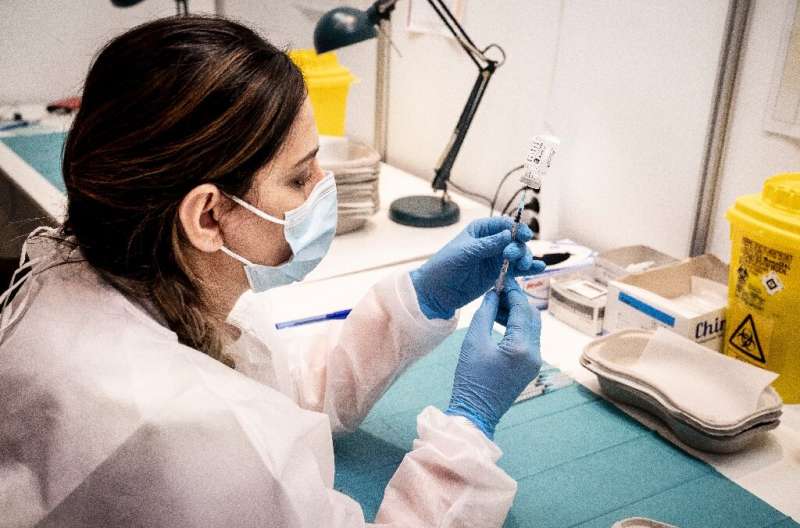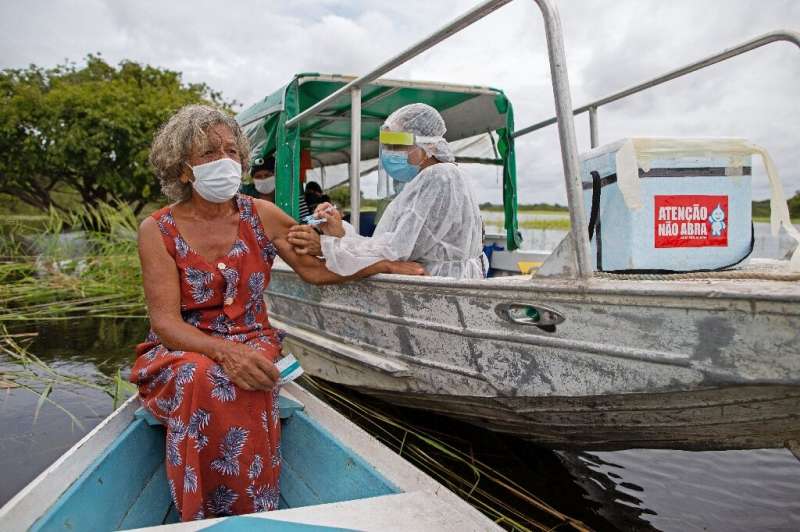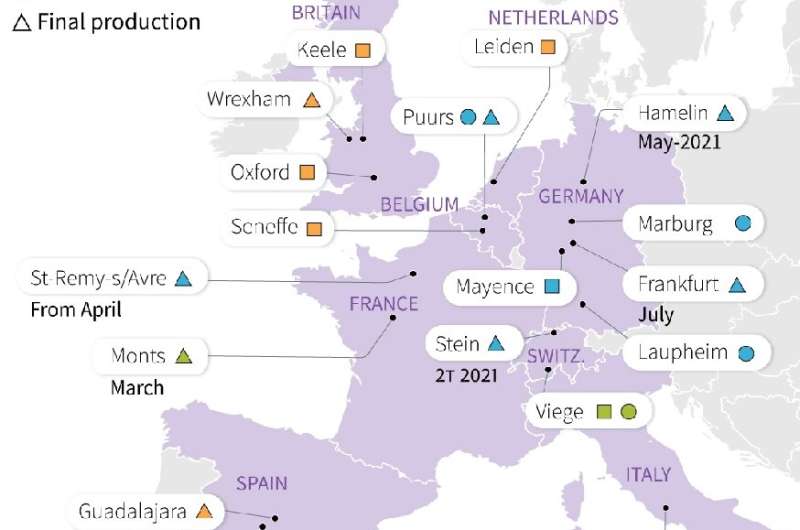WHO warns against virus complacency, variants provoke new measures

The World Health Organization warned Europe against rash reopenings on Thursday despite a fall in new COVID-19 cases and Germany announced a partial border closure, reminders of the long battle ahead before vaccines can tame the pandemic.
Mass COVID-19 vaccination programmes are being ramped up in many countries in the race against more contagious variants, and governments are urging populations to continue to cope with closures as the inoculation campaigns move ahead.
But while new cases and deaths have come down in some places, a WHO official said it was by no means time to ease up.
"The decline in cases conceals increasing numbers of outbreaks and community spread involving variants of concern," said WHO Europe director Hans Kluge.
"At this point, the overwhelming majority of European countries remain vulnerable," he added, pointing out the "thin line between the hope of a vaccine and a false sense of security."
More than a million cases are registered every week across the 53 member states in the UN agency's European region, which includes several in central Asia.
But the number of reported cases has been falling over the past four weeks and deaths have also been declining over the past two weeks.
Worldwide deaths have meanwhile climbed to nearly 2.4 million, with the United States the hardest-hit, while the Middle East surpassed 100,000 fatalities on Thursday.
Germany was taking no chances and said Thursday it will ban travel from Czech border regions as well as Austria's Tyrol due to concern over new variants.
Europe's biggest economy had already in late January banned most travellers from countries classed as mutation areas or places hardest hit by more contagious variants.
It has halved its daily infections rate after more than two months of painful curbs.
But fears are growing that the positive trend could be compromised by travellers from border regions reporting sky-high case rates.
Other nations were extending their restrictions, including Ireland, where Prime Minister Micheal Martin said the current lockdown was set to be prolonged until April.

'Thousands of people dying'
Vaccine distribution has varied widely worldwide, though overall more than 155.7 million people in at least 91 countries have been inoculated so far, according to an AFP tally.
Rollouts are being hampered by limited supplies and AstraZeneca's jab has been in the spotlight after a number of European countries refused to authorise it for those over-65—the demographic most vulnerable to COVID-19.
There have also been questions over its effectiveness against the virus strain that emerged in South Africa.
Nevertheless, the WHO backed AstraZeneca's coronavirus shot on Wednesday—including for over-65s and in places were new virus variants are circulating.
The AstraZeneca shot forms the bulk of doses being rolled out around the world—especially in poorer countries—under the Covax programme.
WHO expert Alejandro Cravioti said the organisation was awaiting more specific data on the vaccine's efficacy in over-65s, but it "would not be appropriate" to wait with "thousands of people dying".
On Thursday, AstraZeneca said its 2020 earnings had doubled, even without taking into account sales of its vaccine, which was only approved for use at the end of last year.
The WHO's Kluge also reiterated a call for the distribution of vaccines to include poorer countries, citing it as a "moral imperative" but also a means of mitigating risks.
"Unfair access to vaccines can backfire. The longer the virus lingers, the greater the risk of dangerous mutations," Kluge said.
Two African nations announced deliveries of China's Sinopharm vaccine, including Equatorial Guinea, which said Beijing had donated 100,000 doses.
Zimbabwe will receive 800,000 doses by the start of March, with China donating a quarter and the government paying for the rest.

But there was also a reminder of the false information and conspiracy theories that have contributed to vaccine scepticism among some.
Instagram blocked Robert F Kennedy Jr—nephew of assassinated US president John F Kennedy—for spreading misinformation about the virus and vaccines.
Kennedy has repeated a false claim that the recent death of baseball legend Hank Aaron was linked to a COVID-19 vaccine.
Baked Alaska
The coronavirus has infected more than 107 million people since the outbreak emerged in China in December 2019, according to an AFP tally.
Beyond vaccines, there was also positive news on treatments, with a study showing the arthritis drug tocilizumab reduces the risk of critically ill patients dying of COVID-19.
With most Europeans still living under various curbs on their activities, the EU slashed its growth forecast for 2021, but Brussels said that a powerful rebound was near.
The EU's Economy Commissioner Paolo Gentiloni said "there is, at last, light at the end of the tunnel."
Europe's oldest person, French nun Sister Andre, stood as a symbol of hope.
Sister Andre planned to have a special birthday feast including her favourite dessert—baked Alaska.
© 2021 AFP


















